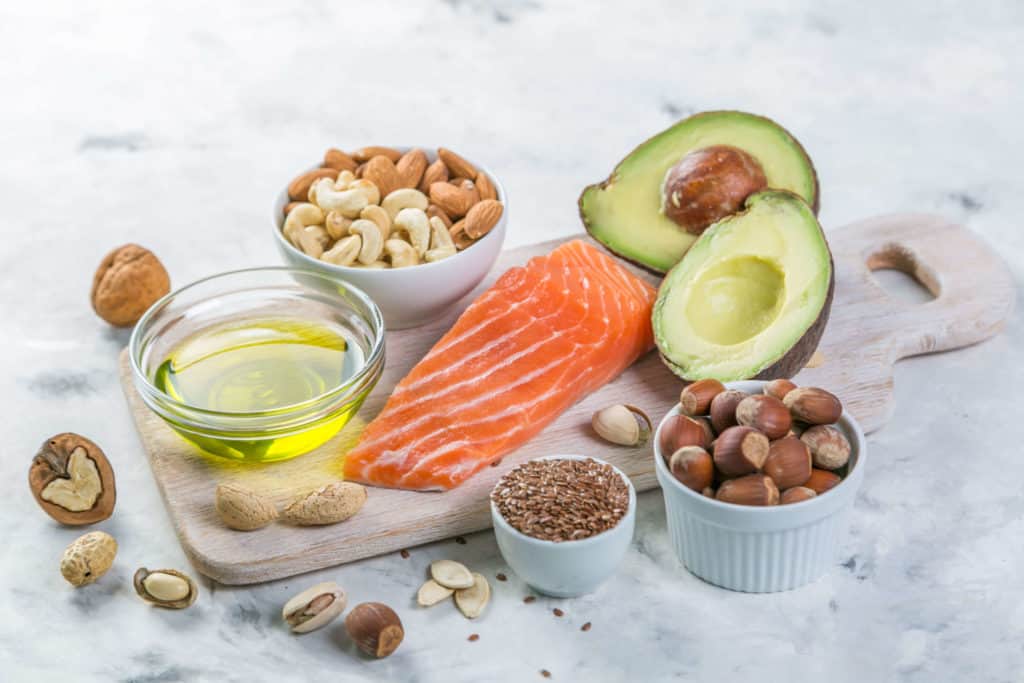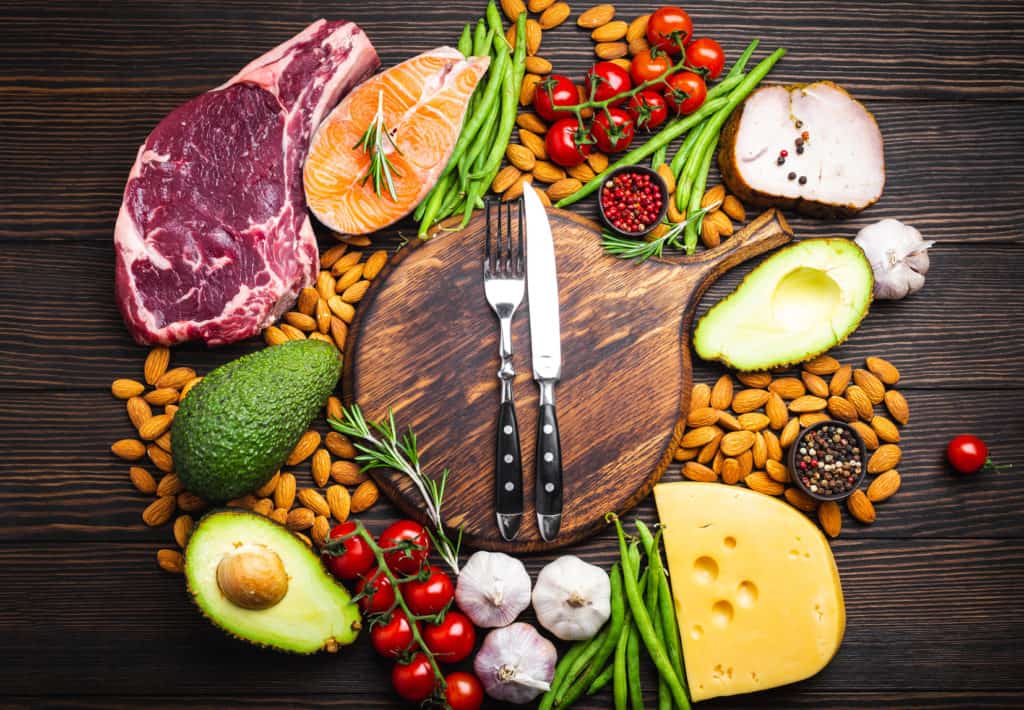You are likely familiar with the term keto. The ketogenic diet is a very low-carb, high-fat diet that shares many similarities with the Atkins and low-carb diets. Unlike other diets, keto is not a fad many studies show that this type of diet can help you lose weight and improve your health.
About the keto diet
The ketogenic diet (or keto diet, for short) is a low-carb, high-fat diet that offers many health benefits. During nutritional ketosis, your body converts fat into compounds known as ketones and begins using them as its main source of energy. It also turns fat into ketones in the liver, which can supply energy for the brain. Ketones are also known as ketone bodies.
The ketogenic diet has been used therapeutically to remedy conditions such as epilepsy, polycystic ovarian syndrome, irritable bowel syndrome, dementia, and diabetes. A ketogenic diet may even have benefits against cancer, Parkinson’s, Alzheimer’s disease, and bipolar mental illness. Not to mention the fact that people who embrace the keto diet report feeling great overall, dropping pounds, having increased energy, and balanced hormones.
The Ketogenic Diet in a Nutshell
Unlike other diets, keto is not a fad and has some pretty solid science behind why so many people are successful following it. It targets some underlying reasons for weight gain – including hormonal issues such as insulin resistance, high blood sugar levels, and the vicious cycle of eating empty calories due to out-of-control hunger and cravings.
Doing so switches your body into a state of “ketosis” where you focus on a high-fat, adequate-protein, and low-carb intake, this diet forces your body to burn fats instead of available carbohydrates and reduced blood sugar and insulin levels. The great thing about this diet is that it is delicious! Once you are fat-adapted, you won’t have cravings, and you will be satisfied all the time.

Following a basic ketogenic diet is super simple as well. Here are the basic principles of the plan.
- Limit your carb consumption
Eating a very low-carb diet is by far the most important factor in achieving ketosis. This means limiting carbohydrate intake to 20-30 net grams per day or 5% of total intake. - The healthy fat in your diet
Most healthy fats contain zero net carbs, this consists of things like olive oil, avocados, coconut oil, nuts, nut butter, butter, cream, cheese, etc, which also have other health advantages. - Maintain adequate protein intake
Something that makes the ketogenic diet different from other low-carb diets is that it does not “protein-load.” The ketogenic diet does not overdo it on protein. You can consume them in moderate amounts as needed to control hunger. Reason being: In small amounts, the body can change protein to glucose, which means if you eat too much of it, especially while in the beginning stages, it will slow down your body’s transition into ketosis. - No glucose
In the absence of glucose, your body will now be forced to burn fat and produce ketones. - Fat burning
In ketosis, you become an efficient fat burner and will drop pounds until your body reaches a healthy weight.

Success tips for following a keto lifestyle
Intermittent fasting (IF) refers to occasionally reducing or eliminating food intake for some time. There are many different methods of IF, with fasting periods after twelve o’clock in the afternoon and your last meal sometime before 7 pm. This is a good place to start when just beginning keto. Your body will burn excess glucose for energy which will supercharge your keto lifestyle allowing your body to dig into fat for fuel quicker.
A Harvard study revealed that intermittent fasting can manipulate the mitochondria in the same way as the ketogenic diet to increase lifespan.
Reduce stress
Chronic stress can get in the way of your body entering ketosis. The stress hormone cortisol causes blood sugar to rise which prevents your body from using fats for energy because there is too much sugar in the blood. Doing all you can to mitigate the stress in your life will definitely help you be more successful on the keto diet.
Make sleep a priority
How do you sleep? If you are not getting enough sleep or your sleep quality is poor, your stress levels may be elevated. Some studies have found that not getting enough sleep can interfere with weight loss. One way to make sure you get the best rest possible is to keep to a regular sleep schedule; go to bed and get up at the same time each day. Sleeping in a cool room and turning off all electronic devices well before bedtime will also help improve the quality and duration of your sleep.
Exercise frequently
Sticking to a regular exercise schedule while on the keto diet will help boost your ketone levels and keep you burning fat for fuel. When you exercise, you deplete your body’s glycogen stores. These are normally replenished when you eat carbs, which are broken down into glucose. The more you exercise, the quicker you will deplete your glycogen stores and get into ketosis. It is best to include both high-intensity exercises as well as low-intensity exercises. This will help to keep your blood sugar balanced and keep you in ketosis.
Stop drinking diet soda and using sugar substitutes
Don’t be confused; there is nothing healthy about zero-calorie drinks – they deserve no place in the ketogenic diet plan. When you drink diet soda it can send a signal to your body that a large amount of sugar is coming into the body – this raises blood sugar levels.
Studies support that the body reacts similarly to some sugar substitutes as it would to regular sugar. Besides, when you eat zero-calorie sweeteners, it will increase your cravings for sweet foods and drinks which will undermine your efforts on the keto plan. Keep in mind that one of the great benefits of the keto plan is that you alter your taste buds to like low-carb, whole foods as opposed to sugary foods.
Note; If you are having a hard time giving up your soda fix, try sparkling water instead – it comes in many great flavors.
Drink plenty of water
Because keto dieting has a diuretic effect, it can also be dehydrating. Staying hydrated is a healthy option no matter what, but is especially important when you are on the ketogenic diet. This is because the body excretes more water when carbohydrates aren’t present. Getting enough water helps keep you from feeling fatigued, is important for digestion, and aids in hunger suppression.
To avoid dehydration, Robin Foroutan, MS, RDN, HHC, an integrative medicine dietitian and a spokesperson for the Academy of Nutrition and Dietetics, recommends 2 liters (about 8 cups) of water per day.
Use MCT Oil
Using MCT oil as a supplement will help get your body into a ketogenic state even if your glycogen stores are not depleted. MCT oil helps increase ketone levels and is used for energy instead of going through your stomach for digestion. Unlike most fats, MCTs are rapidly absorbed and taken directly to the liver, where they can be used immediately for energy or converted into ketones.



